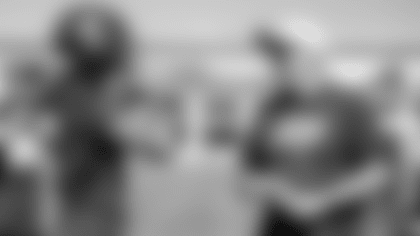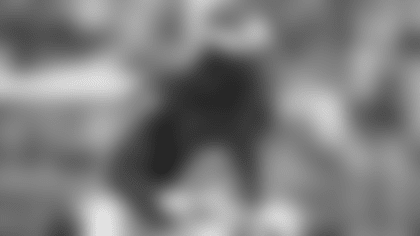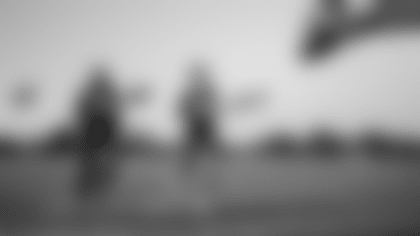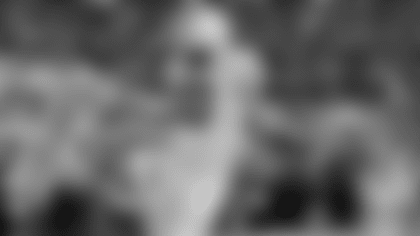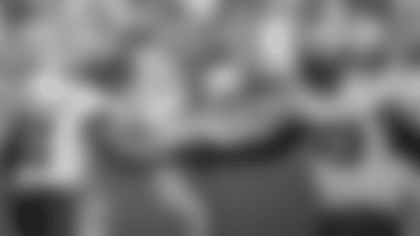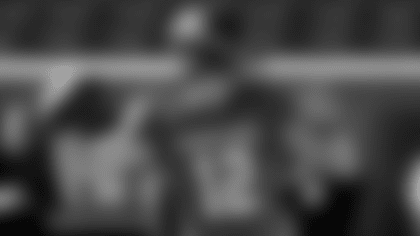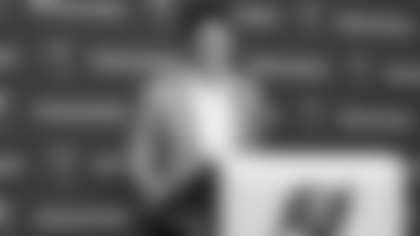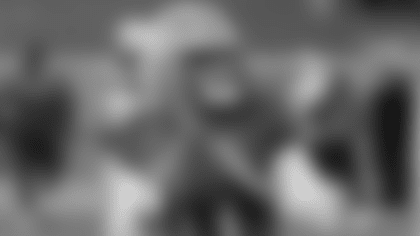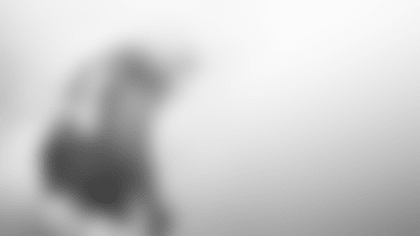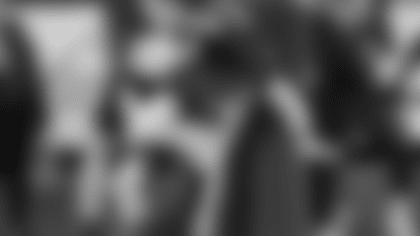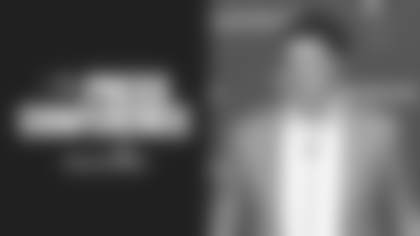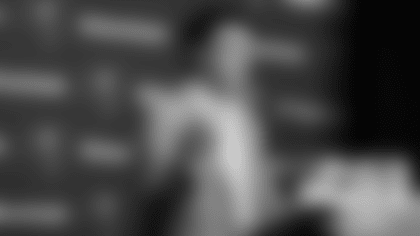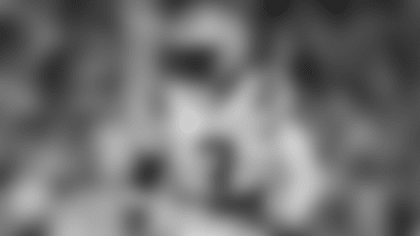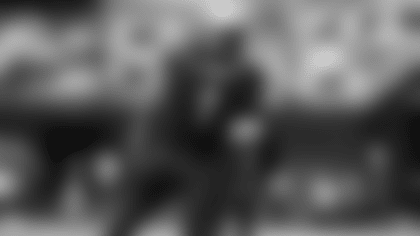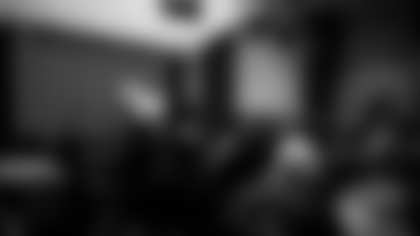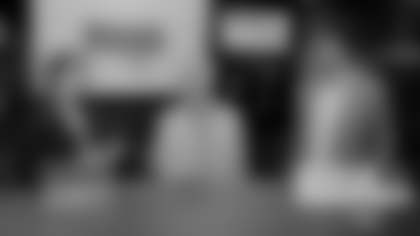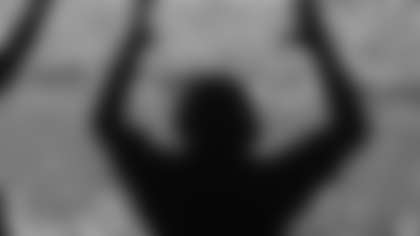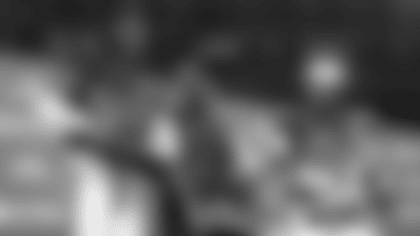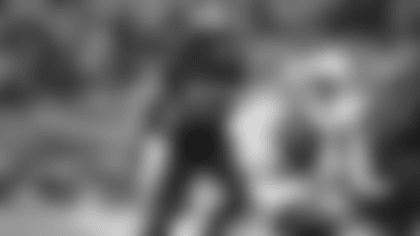QB Brad Johnson set Buccaneer passing records in completions and attempts, but Tampa Bay's rally fell short against Chicago
In principle, 80-yard scoring drives are a good thing.
When they end in field goals, however, as they have too often for the Tampa Bay Buccaneers this season, they can be more like a birdie when you're two strokes back: Not good enough.
On Sunday against the Chicago Bears in Raymond James Stadium, two promising first-half drives sputtered to a halt inside the opponents' 10 and ended in field goals. The points not scored were eventually critical in the Bucs' crippling, 27-24 loss, as Tampa Bay dropped to 4-5, three games out of first in the NFC Central.
The Bucs actually rallied gamely from a 15-point, fourth-quarter deficit, but the comeback fell just short. Or just right, if you prefer. Martin Gramatica's 48-yard field goal try as time expired hit the right upright and bounced back.
The Bears, who improved to 7-2 and recaptured first place in the NFC Central, followed a formula opposite to the Bucs' early fortunes, scoring on long, quick strikes and most importantly, scoring touchdowns.
"We just came up short," said Head Coach Tony Dungy. "We had a lot of good field position in the first half but couldn't punch the ball in. They ended up scoring long touchdowns. That's something they hadn't done a lot, but today they did. It's going to be a difficult challenge for us now."
The Bears came into the game having not scored an offensive touchdown against the Buccaneers in a span of 18 quarters, a streak that reached 19 before Chicago broke through in the second quarter on a 28-yard touhdown reception by Marty Booker over the middle. Though Tampa Bay's three first-half field goals still allowed the Bucs to take a 9-7 lead into halftime, Booker's play was just a taste of what was to come.
Chicago mostly eschewed the receiver-screen passing game that the Bucs had defended so well over the past two years and went straight downfield, to disastrous results for the Buccaneers. In the third period, Booker caught two more long scoring passes, one covering 48 yards and one covering 66 and both appearing to take advantage of coverage breakdowns.
Meanwhile, in what probably amounted to the Bucs' most painful quarter of the season, the Bucs' offense ran four drives in the third period – a trio of three-and-outs and a one-play drive that ended in a fumble. That turnover allowed Chicago to tack on Paul Edinger's 26-yard field goal and take a 15-point lead into the final period.
Tampa Bay's offense, which clicked in the game's other three quarters, mounted a rally in the fourth period, but that early deficit was too much to overcome. A 78-yard touchdown drive to open the fourth was kept alive by a third-down pass-interference penalty on CB Walt Harris, and FB Mike Alstott ran the ball in from the one to close the gap to 24-16.
Alstott scored his sixth touchdown of the season and the 45th of his career, putting him just one behind Bucs career record-holder James Wilder, but in general Tampa Bay's running game had trouble against Chicago's conference-leading rush defense. Alstott gained just two rushing yards and Dunn added 12. However, those two backs did pick up 174 yards on 16 receptions, combined. Dunn's 12 receptions and 138 yards were both career highs.
After Alstott's touchdown, a pumped-up Buccaneers' defense stopped Chicago quickly, keyed by DE Steve White's second sack of the game. However, Tampa Bay, perhaps a bit desperate, saw a risky maneuver backfire moments later. After their own drive stalled quickly, Mark Royals pulled down an apparent punt and went for the fake. After scrambling, his pass to RB Aaron Stecker was not enough to pick up the first down.
Chicago thus gained possession at the Bucs' 28, and though they couldn't manage a first down, did net Edinger's 40-yard field goal, which would eventually prove to be the winning margin.
The Bucs' next drive was another in a string of impressive fourth-quarter marches this season, most of which have provided hope in eventual losses. This one covered 77 yards on 12 plays, with QB Brad Johnson completing eight of 11 passes to take the ball to the one, then driving over himself from one yard out for the touchdown. When he found Alstott over the middle for a two-point conversion, the Bucs were suddenly within three points of a tie.
That hoped appeared to crumble when, after the Bucs forced a quick three-and-out, Johnson's first pass was intercepted by S Tony Parrish. Attempting to run out the last two minutes, the Bears gave the ball to rookie RB Anthony Thomas, who was limited to 58 yards on 23 carries on the day. However, when Thomas fumbled and the Bears barely recovered, Chicago Head Coach Dick Jauron called for three straight kneel downs.
That gave the ball back to the Bucs with 18 seconds remaining. Two short passes to Dunn put the ball just over midfield, where it appeared the Bucs would have to throw a 'Hail Mary' pass. However, an unnecessary roughness penalty on Chicago's R.W. McQuarters tacked on 15 yards and the Bucs suddenly had a reasonable field goal attempt.
Gramatica's subsequent miss was just his third of the season in just 17 tries this season, with the other two misses coming from 52 and 54 yards out.
McQuarters, however, was responsible for two of the Bears four takeaways, as the Bucs lost the turnover battle for the first time this season. Johnson was intercepted twice after going three straight games without a pick, and both Alstott and Dunn lost a fumble.
"You can't fumble, you can't give up long touchdown passes, you can't have penalties," said Dungy. "Those are the fundamental things of the game."
That helped negate a 414-yard outing by the Bucs' offense, most of which came through the air. Johnson set team records for completions (40) and attempts(56) and recorded the first 300-yard game (399) by a Buc passer since Trent Dilfer's against Minnesota on October 3, 1999.
WR Keyshawn Johnson, the NFC's leading receiver, added to his astounding totals with 12 receptions for 89 yards, giving him 71 on the season, already equal to the fourth-highest total in team history. The team record, 86 by Mark Carrier in 1989, is only 15 catches ahead for Johnson.
CB Ronde Barber had another big day for the defense, making eight tackles and adding an interception and two passes defensed. His pick, on the first play of the game, was the only takeaway registered by the Bucs on the day, and it was negated two plays later on Dunn's fumble. DE Simeon Rice, who beat T Blake Brockermeyer repeatedly, finished with five tackles, a sack, a forced fumble and two passes batted down.
During the contest, Buccaneers.com provided quarter-by-quarter reports on the action, complete with details of all the game's big plays. Those reports follow to give a closer look at how the Bucs' three-point loss to Chicago unfolded.
First Quarter Report



